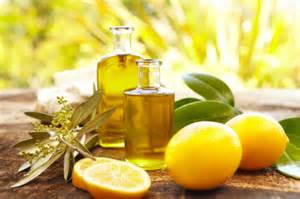Which Medicine-2
Meanwhile, the toxic potential of chemical drugs is well documented. In the Journal of the American Medical Association , (27 November 1987, p2891), we are told that one patient in every thousand admitted to hospital will be killed by the medicine they receive there. And according to the Chemical Marketing Reporter (2 January 1989, as a result of the 68 million prescriptions for non-steroidal drugs (NSAIDS) given to American sufferers of arthritis, 10,000-20,000 deaths occur each year. It is unfair to criticize essential oils for possible (unknown) side effects.
For example, the data sheet for Eli Lilly's antidepressant drug Prozac contains not only warning that rashes and other allergic reactions might be experienced, but a long list of 'adverse effects', far too long to go into here, which includes fever, nausea, diarrhoea, vomiting, insomnia, anxiety, dizziness, fatigue, seizures, pulmonary events, hair loss, sexual dysfunction and so on.
Apparently, 'hypomania or mania occurred in approximately one per cent of fluoxetine (Prozac treated trial patients'. And this, supposedly, is a safe drug!
In America, drug safety is regulated by the Federal Drugs Administration but according to the Democratic representative Ted Weiss (NY), 102 out of 198 prescription drugs approved by them from 1976 to 1985 caused serious reactions which necessitated their either being relabelled or removed from the market. How many of the chemical drugs currently being prescribed for the mind are destined, as time reveals their drawbacks, for the bin?
Natural medicines are often dismissed as being mere 'placebos' - chemically inactive substances that work only by the power of suggestion. The irony of this argument is that within the chemical -medical field the placebo effect is well known-after much worldwide research, 'the placebo effect' is said to cause wellness in 30-35 percent of patients given nothing more than sugar pills. We are not here just talking about minor conditions.
One group of doctors specializing in the treatment of angina pectoris (pain due to reduced blood flow to the heart) discovered that pretending to operate, by cutting the patient open and sewing them back up again, produced a cure rate equal to that produced by actual surgery (tying off the mammary artery): while in a study to assess the effects of a new type of chemotherapy, doctors were surprised to find that 30 per cent of the control group, who had placebos and no drugs, lost their hair!
Placebos have even been found to be as effective as morphine in relieving pain. Clearly, placebos play a part in medicine, but the placebo effect involves all branches of medicine, not just the natural ones.
Indeed , placebos cost the National Health Service at least seventy seven million pounds in the year 1992-3 because that's the value of the antibiotic prescriptions doctors wrote out for viral-induced colds and sore throats, which they new full well they could not possibly cure. On this subject a recent Audit Commission report stated : 'Many doctors say that they often cannot afford the time to explain to patients the reasons why they do not need any medicine'. In other words, the antibiotics were placebos. The report also states.' Over-prescribing builds up resistance and disturbs the balance of micro-organisms in the body, permitting more severe infections to develop'.
When I lecture on aromatherapy, I make it quite clear that essential oils are not cure-alls. Clearly, we all have reason to be grateful to the surgeons and other medical professionals, and many people are alive today only because of the chemical drugs they take. All this, however, does not negate the fact that essential oils have their benefits too. In some cases, as in chemical medicine, essential oils may act as placebos - and why not, if that makes the patient better? But essential oils are not just placebos, and there are hundreds of scientific papers to prove that point. As a complementary therapy, used correctly, aromatherapy is a very safe method of restoring well-being and one that, if made more widely available, would bring tremendous benefits to humankind.
Reference: The Fragrant Mind: Valerie Ann wormwood.
- Home
- Addiction
- History of Drugs-4
- History of Drugs
- History of Drugs-3
- Rosemary-Personality-Profile
- The Somatid Connection
- Personality In Perfumery
- Personality Tests
- The Water Connection
- History of Drugs-5
- Mind-Mood-Emotion-Quick Reference Chart - S - Un
- Cinnamon - Personality profile
- Emotional-Healing Problems-A-B-Positive and Negative Mood Charts
- Emotional-Healing Problems-B-H-Positive and Negative Mood Charts
- Mind-Mood-Emotion-Quick Reference Chart - Un - W
- How Essential Oils Work On the Brain
- Cardamom Personality Profile
- Essential Oils Used For Emotional Healing-A-M
- Electro Magnetism
- JASMINE- Floral - Jasminum Officinale,J. grandiflorum, J.sambac
- HYACINTH - Floral - Hyacinthus Orientalis
- Emotional Healing Introduction - 2
- Emotional Healing Introduction
- Memory Enhancement, Mental Clarity and Efficiency
- How To Get Through Life In One Piece
- HELICHRYSUM (Immortelle or Italian Everlasting)
- GRAPEFRUIT - Fruitie - Citrus paradisi
- The Art Of Smelling - Which Method - Aromaprofiles
- The Art Of Smelling
- GINGER PERSONALITY PROFILE
- Geranium - Pelargonium graveolens Personality Profile
- Frankincense Resinie - Boswellia Carteri
- Quality and Purity - 2 - AromaProfiles
- Quality and Purity - AromaProfiles
- ChemoTypes - AromaProfiles
- Adaptogens - AromaProfiles
- Synergy and Creative Blending
- Complexity and Flexibility- AromaProfiles
- How To Use Essential Oils For The Fragrant Mind



